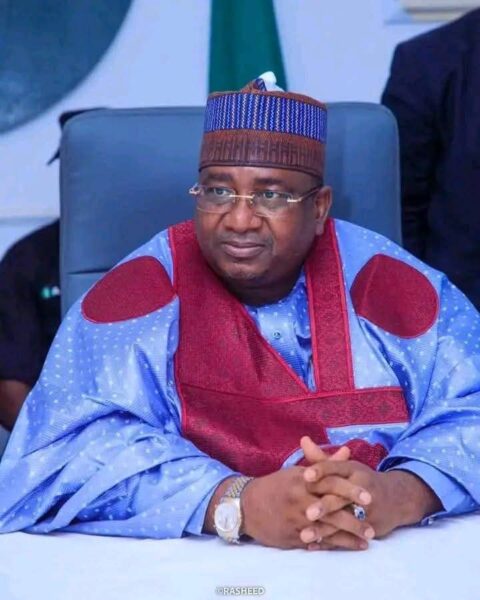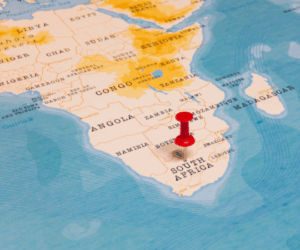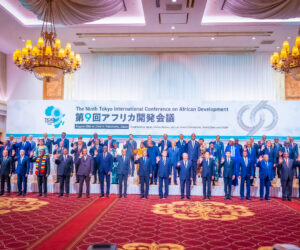It was Nelson Mandela who famously said that “Education is the most powerful weapon which you can use to change the world.” Yet, when Malcolm X declared that “education is the passport to the future, for tomorrow belongs to those who prepare for it today,” he was perhaps unknowingly foreshadowing the kind of energy and passion Governor Nasir Idris has brought to the education front in Kebbi State since assuming office nearly two years ago.
For us in Kebbi, this is hardly surprising. The governor’s pedigree is steeped in education. From the classroom, through unionist where he rose to become the national president of the Nigeria Union of Teachers (NUT), and later, the president of the Nigeria Labour Congress (NLC), Idris has been a forward looking leader. It is no secret that many leaders with such a background would often discard their foundation once they make the leap into politics. Not Idris! This is because, not only has he held on to his roots as a teacher, but he has also chosen to transform it into a platform for real impact. Wonder that his footprints in the education sector of Kebbi state, are visible and undeniable.
Without mincing words, Kebbi stands out as perhaps the only state in Nigeria where free education is truly free. No hidden charges, no bureaucratic complications. Parents only need to present their children, and they are enrolled without the usual hurdles that frustrate access in other states. This deliberate policy has restored confidence in public education and lifted a heavy burden off parents, especially in rural communities where poverty often deprives children of schooling opportunities.
Even at the tertiary level, students have not been left behind. Scholarships worth nearly ₦3 billion have been disbursed to Kebbi indigenes in different institutions home and abroad, ensuring that financial constraints do not prematurely end the academic journey of promising youths. This is happening in a state where education is still competing with deep-rooted cultural and economic barriers, thus making his intervention nothing short of revolutionary.
I have been most impressed by the Governor’s keen interest on institutions that train professionals. At the Ambursa College of Midwifery, for instance, he approved the procurement of essential equipment to expedite the take-off of the Birnin-Kebbi based institution. This intervention aligns perfectly with not just his vision of producing well-trained healthcare professionals who will strengthen the state’s health sector, but also the people’s desire for well staffed healthcare facilities across the state. Beyond midwifery, tertiary institutions across the state have benefitted from renovations, infrastructural upgrades, and improved teaching aids, reflecting his recognition that education cannot thrive in dilapidated or under-resourced environments.
But perhaps one of his most innovative interventions has been the integration of Tsangaya schools (traditional Qur’anic schools) into the modern education system. For decades, these schools operated outside the mainstream, leaving children with little or no exposure to literacy and numeracy. Thus, providing funding and incorporating basic modern subjects into their curriculum creates a hybrid model, designed to preserve cultural heritage while also giving thousands of children a chance at a more balanced education. The ripple effect is already visible, with the number of out-of-school children in Kebbi steadily declining.
Another area where his administration has broken new ground is in promoting equal access to education, especially for the girl-child. In Kebbi, cultural barriers and societal expectations often keep girls away from school. Governor Idris has confronted this challenge head-on, launching policies that encourage female enrolment and retention. The results are evident. More of our girls are now staying in school and pursuing their education. His donation of ₦50 million to Command Science Secondary School (Girls), Goru, was indeed a bold statement of his belief that investing in the girl-child is investing in the state’s future.
To ease the financial pressure on families, his administration took the unprecedented step of covering the WAEC and NECO examination fees for all Kebbi students. This intervention has increased participation in these critical assessments, enabling more students to secure their certificates without the obstacle of unpaid fees.
Idris has also embarked on a massive infrastructural renewal. Dilapidated classrooms and overcrowded facilities are being systematically addressed. Already, billions have gone into the renovation and construction of 120 secondary schools across the state. In addition, four mega schools are being constructed—one in each of Kebbi’s four emirate councils. These flagship institutions are designed to be models of excellence, equipped with modern learning facilities to rival the best in the country.
Yet, infrastructure alone does not guarantee quality education. Governor Idris understands this, which is why he has placed a premium on teacher welfare and development. First, he extended the retirement age for teachers from 60 to 65 years and increased their service period from 35 to 40 years, ensuring that experience and expertise are not prematurely lost. Then, to plug existing manpower gaps, he approved the recruitment of 2,000 new teachers, a move designed to bring fresh energy into classrooms and reduce teacher-student ratios.
The governor has also increased teacher salaries! This is a bold step in a country where our teachers are often at the bottom rung of wage considerations. Today, teachers in Kebbi state can look others in the face with dignity. This morale boosting and rewarding service approach has created a motivated workforce committed to delivering quality education. This is indeed a recognition of the obvious truth that no education system can rise above the quality of its teachers.
Taken together, these interventions reflect a holistic vision. It shows that Governor Idris is not just investing in buildings, salaries, or scholarships in isolation; he is building an ecosystem where access, equity, quality, and sustainability converge. From basic education to tertiary institutions, from infrastructure to welfare, and from traditional systems to modern innovation, the picture is one of deliberate planning and execution.
As Mandela and Malcolm X reminded us, education is the passport to the future and the weapon to change the world. In Kebbi, Governor Idris is proving that these are not just lofty ideals inherited from past leaders. He is making concrete efforts through policies that are practical, inclusive, and forward-looking to arm the children and youths of Kebbi with the tools they need to own the future and reshape the destiny of the state.








